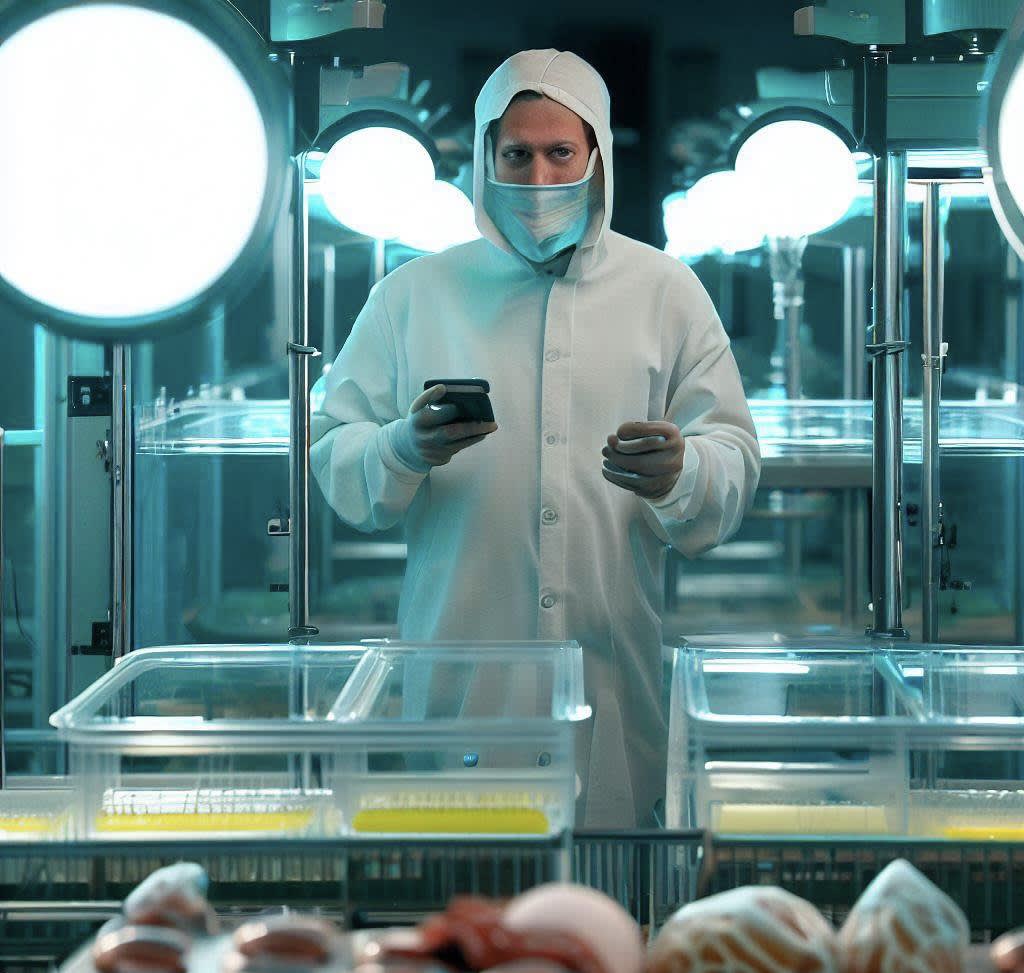Revolutionizing the Plate: The Emergence of the Cellular Agriculture Diet
Eating Meat Without Harm: The Revolutionary Method That Could End Factory Farming Forever!

Over the last few years, a revolutionary approach to food production has been gradually emerging, and it promises to overhaul our conventional diet. Cellular agriculture, an innovative field that uses biotechnology to produce food from cell cultures, represents a potential paradigm shift in our approach to nutrition, posing an intriguing solution to a series of pressing global issues. This essay will explore the advent of the cellular agriculture diet, examining its potential benefits, challenges, and its influence on our future food systems.
Cellular agriculture operates on the principle of culturing cells from animals or plants and encouraging their growth in a controlled environment. This process leads to the formation of food products that are virtually indistinguishable from their traditional counterparts, such as meat, dairy, and eggs, minus the need for conventional animal farming. The emergence of a cellular agriculture diet holds profound implications for environmental sustainability, animal welfare, and global food security.
A primary driver behind the interest in cellular agriculture is the global environmental crisis. Conventional agricultural practices, particularly livestock farming, contribute significantly to greenhouse gas emissions, deforestation, and water pollution. Cellular agriculture, however, promises a significantly reduced environmental footprint. As compared to traditional farming methods, cellular agriculture could decrease greenhouse gas emissions by up to 96%, use 99% less land, and consume 96% less water, according to a study by Tuomisto and Teixeira de Mattos. If these estimates hold, adopting a cellular agriculture diet could represent a significant stride towards a more sustainable food system.
Another compelling argument in favor of cellular agriculture centers on animal welfare. The distressing conditions in which animals are often kept in factory farms have long been a subject of concern for ethical consumers. A cellular agriculture diet would negate the need for such practices, since the products are grown from cells in lab conditions, eliminating the need for the raising and slaughtering of animals.
However, there are significant hurdles to overcome before cellular agriculture can truly revolutionize our plates. Currently, the cost of producing cell-cultured food remains high, primarily due to the expense of the growth medium required to nourish the cells. Moreover, scaling production to meet global demand is a formidable challenge. Despite the considerable progress in this area, the cellular agriculture industry must continue to innovate to make this diet economically viable and widely accessible.
Another potential obstacle is consumer acceptance. Even though cellular agriculture offers a sustainable and humane alternative to traditional farming, many consumers may initially balk at the idea of lab-grown food. This resistance can be attributed to factors such as unfamiliarity, perceived unnaturalness, and safety concerns. Effective communication strategies, rigorous safety testing, and transparent labeling will be critical in winning public trust and acceptance.
However, it is important to highlight that despite these challenges, we are witnessing the steady rise of the cellular agriculture diet. Several companies, like Memphis Meats and Perfect Day, are already offering cell-cultured products, attracting substantial investment, and garnering consumer interest. Also, regulatory bodies are beginning to establish frameworks to oversee this new industry, signaling growing acceptance and recognition of its potential.
In conclusion, the emergence of the cellular agriculture diet marks a potentially transformative moment in our relationship with food. While hurdles remain, the promise of a more sustainable and ethical food system is too significant to ignore. The successful integration of cellular agriculture into our diets will require continued innovation, public education, and supportive regulatory frameworks. The future of our plate might indeed lie in the lab, transforming the way we consume and understand food. As we navigate the pressing environmental and ethical challenges of our time, cellular agriculture may well be a keystone in building a sustainable and compassionate future.






Comments
There are no comments for this story
Be the first to respond and start the conversation.